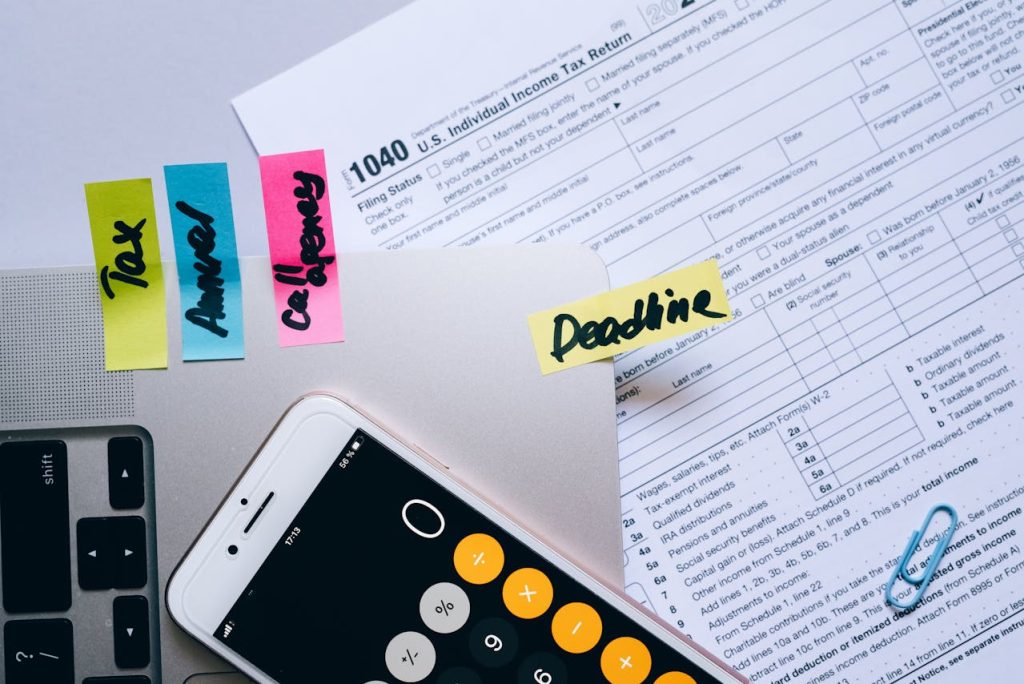
Tax season can feel overwhelming, but it’s also a golden opportunity to keep more of your hard-earned money. Every year, millions of Americans miss out on valuable tax deductions simply because they don’t know they exist or assume they don’t qualify. These overlooked tax deductions can add up to hundreds or even thousands of dollars left on the table. It pays to dig a little deeper if you’re looking to maximize your refund or reduce your tax bill. Understanding which tax deductions apply to your situation can make a real difference in your financial health. Let’s break down 12 tax deductions you might be missing—and how to claim them.
1. State Sales Tax Deduction
If you live in a state without income tax, or if your sales tax payments exceed your state income tax, you can deduct state and local sales taxes instead. This deduction is especially valuable for big-ticket purchases like cars or home renovations. The IRS even provides a calculator to help you estimate your deduction. Don’t forget to keep your receipts for major purchases to maximize this tax deduction.
2. Student Loan Interest
Even if you’re not the one making payments, you may be able to deduct up to $2,500 in student loan interest each year. Parents who co-signed loans and are making payments can also qualify. This tax deduction is available even if you don’t itemize, making it one of the most accessible ways to reduce your taxable income.
3. Out-of-Pocket Charitable Contributions
Most people remember to deduct large charitable donations, but small out-of-pocket expenses for charity work often go unclaimed. Did you buy supplies for a school fundraiser or drive your car for a nonprofit? You can deduct mileage and unreimbursed expenses. Just be sure to keep detailed records and receipts for every contribution.
4. Medical Miles
You can deduct 21 cents per mile (for 2024) driven for medical purposes, such as trips to the doctor, pharmacy, or hospital. This tax deduction is often overlooked, but it can add up quickly if you or your family have frequent medical appointments. Track your mileage throughout the year to make claiming this deduction easy.
5. Job Search Expenses
Certain job search expenses may be deductible if you’re looking for a new job in your current field. This includes resume printing, interview travel, and even employment agency fees. While the Tax Cuts and Jobs Act suspended some miscellaneous deductions, it’s worth checking if you qualify, especially if you’re self-employed.
6. Educator Expenses
Teachers and eligible educators can deduct up to $300 for classroom supplies they purchase out of pocket. This tax deduction is available even if you don’t itemize. If both spouses are educators and file jointly, the deduction doubles. Save your receipts for everything from books to art supplies.
7. Home Office Deduction
You may qualify for the home office deduction if you’re self-employed or run a side hustle from home. The space must be used regularly and exclusively for business. You can choose between the simplified method (a flat rate per square foot) or actual expenses. This deduction can cover a portion of your rent, utilities, and even internet costs.
8. Retirement Savings Contributions Credit
Also known as the Saver’s Credit, this tax deduction rewards low- and moderate-income taxpayers for contributing to retirement accounts like IRAs or 401(k)s. Depending on your income, you could get a credit worth up to $1,000 or $2,000 for married couples. This directly reduces your tax bill, not just your taxable income.
9. Self-Employed Health Insurance Premiums
If you’re self-employed, you can deduct 100% of your health insurance premiums for yourself, your spouse, and dependents. This tax deduction applies even if you don’t itemize and can significantly lower your taxable income. Don’t forget to include dental and long-term care premiums if you qualify.
10. Mortgage Points
You may have paid points to lower your mortgage interest rate if you bought a home or refinanced. These points are deductible, either all at once or over the life of the loan, depending on your situation. Many homeowners overlook this tax deduction, so review your closing documents carefully.
11. State Income Tax Paid Last Year
Did you owe state income tax when you filed last year’s return? You can deduct that payment on this year’s federal return. This is a commonly missed tax deduction, especially for those who make estimated payments or pay late.
12. Energy-Efficient Home Improvements
Upgrading your home with energy-efficient windows, doors, or appliances can qualify you for valuable tax credits and deductions. The IRS offers credits for certain improvements, which can directly reduce your tax bill.
Make Every Tax Deduction Count
Missing out on tax deductions means giving away money you could keep or invest. By staying informed and organized, you can take advantage of every tax deduction you’re entitled to. Review your expenses, keep good records, and don’t hesitate to consult a tax professional if you’re unsure. Every dollar you save on taxes is a dollar you can use to build your financial future.
Have you ever found a tax deduction you didn’t know about? Share your story or tips in the comments below!
Read More
Stop Reading About Last Year’s Top Ten Mutual Funds
The post 12 Tax Deductions You’re Probably Missing (And Leaving Money on the Table) appeared first on The Free Financial Advisor.







